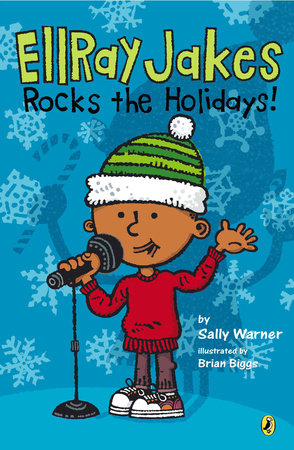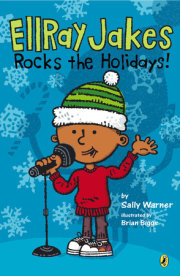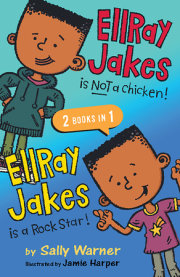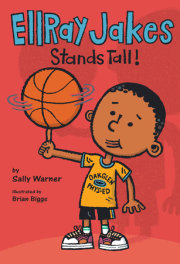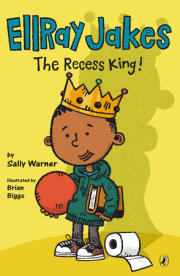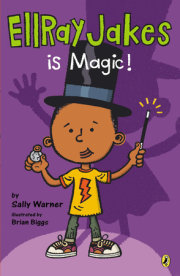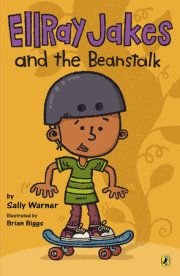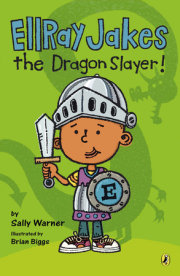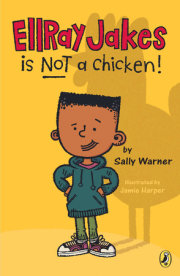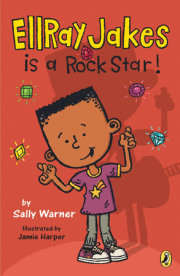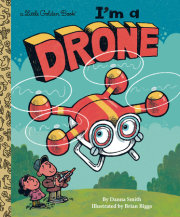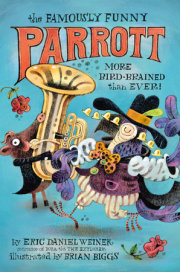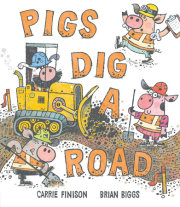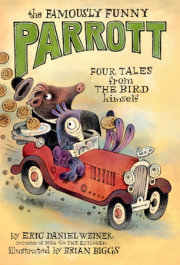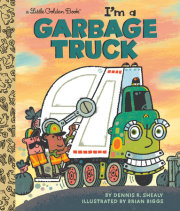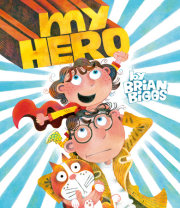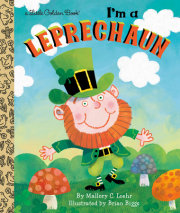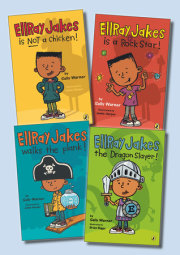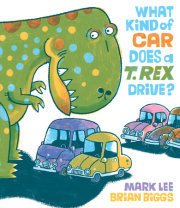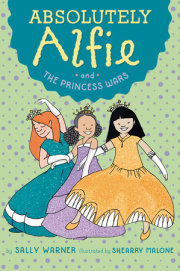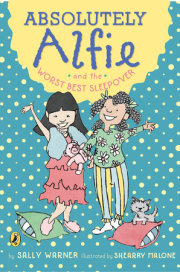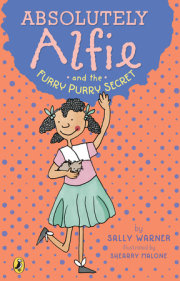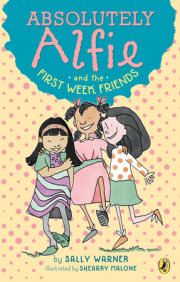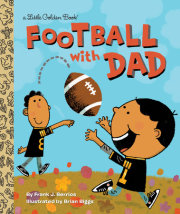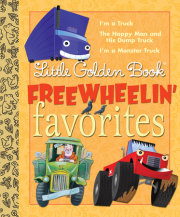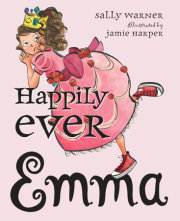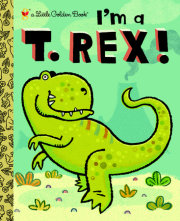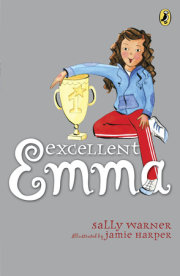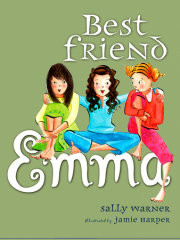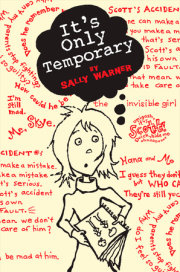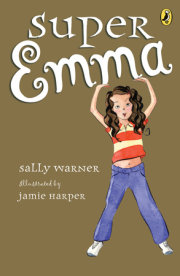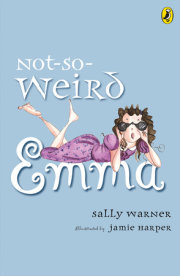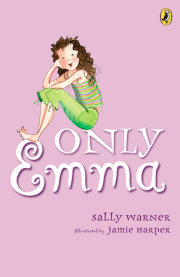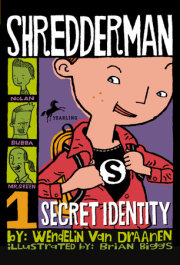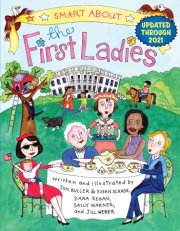OTHER BOOKS ABOUT ELLRAY JAKES
EllRay Jakes Is Not a Chicken!
EllRay Jakes Is a Rock Star!
EllRay Jakes Walks the Plank!
EllRay Jakes the Dragon Slayer!
EllRay Jakes and the Beanstalk
EllRay Jakes is Magic!
1
RAINY SATURDAY
“This rain is wrecking my weekend,” I tell Mom. I am staring out the kitchen window after a TV-and-cereal breakfast. We have all the lights on, it’s so dark outside.
My dad and I usually do chores together on Saturday mornings. We eat a secret doughnut, too. But he’s in sunny Arizona, looking at a meteorite. He’s a rock scientist.
The way I learned it, it’s called a meteoroid when it whizzes through space. That same space rock is a meteor—or shooting star—when it enters Earth’s atmosphere and starts to burn up. And whatever is left is called a meteorite once it’s on the ground.
You’re welcome.
I memorized all that, and I still didn’t get to go to Arizona! My dad’s giving a lecture at a university in Phoenix on Monday, that’s why.
“The rain’s not wrecking your whole weekend,” Mom reminds me, wiping her hands on the clean kitchen towel she throws over her shoulder. “Corey’s spending the night with us, remember? He’ll be here at five. I’m making chili dogs.”
“Oh, yeah,” I say, smiling. Good old freckle-face Corey Robinson! One of my two best friends in the third grade at Oak Glen Primary School. And chili dogs!
“I get to have nobody,” Alfie says, kicking the leg of our kitchen table.
Alfie is my little sister. She’s four. She is kind of a golden color. But she can cloud up fast, especially on a rainy Saturday in December.
“It’s not fair,” Alfie says, giving the kitchen table leg an extra-hard kick. “Ow,” she cries, rubbing her small red sneaker.
“Santa’s watching,” I warn. “Don’t forget, Alfie. He’s making a list.”
I am planning on using that sentence a lot this December, to keep Alfie from having too many meltdowns. They wear us out. Once we had to leave a movie before it even started, all because of Raisinets.
Alfie is against them.
“Santa is not making a list,” Alfie says. “He doesn’t even have a key to our house! Tell Santa not to make a list, Mom—or I’m calling 9-1-1. Because that’s spying.”
“You’d better not call 9-1-1, or you’ll be in big trouble, young lady,” Mom says, opening the freezer door. “You don’t play around with that. Say. I have an idea,” she says, her face hidden for a second byfreezer mist. “How about if we make some of our famous oatmeal cookies for tonight? Corey loves them. And it’ll be fun.”
This is good news, because Mom’s oatmeal cookies are epic. I brought a big batch to school once, and everyone loved them. Ms. Sanchez even took a bunch of them home in her plastic lunch container.
“I get to smash the eggs,” Alfie says, her brown eyes sparkling. “Not EllWay.”
That’s how she says my name.
“You break eggs gently, you don’t smash them,” Mom says, putting some sticks of butter in the microwave to soften. “And we’ll put them into a separate bowl first, this time,” she adds.
Last time we made cookies, pieces of eggshell got into the cookie dough. That’s what Mom’s remembering.
My stomach is growling already!
“Mom?” I say, after the first two trays of cookies are in the oven, the timer’s ticking, and a worn-out, cookie-dough-spattered Alfie is curled up on the family room sofa with her blankie, her thumb, and the newest Fuzzy Kitties DVD.
“Hmm?” she says, stirring milk into her coffee.
“Why did we move to Oak Glen?” I ask.
“Wait, what?” Mom says, surprised.
“Oak Glen,” I repeat. “How come we moved here from San Diego?”
It happened when I was five years old. I wasn’t exactly paying attention then.
To anything.
I couldn’t ask this question if Dad was here, by the way. He’d prickle up and say, “Why? What happened?” See, there aren’t too many families with brown skin in Oak Glen, and I sometimes get the feeling my dad is kind of ready for something to go wrong—even though nothing has. And I think he’s the one who wanted us to move here.
“Why?” Mom asks. “What happened?”
I sigh. “Nothing happened,” I say. “I was just wondering.”
Rainy mornings do that to me.
But if Mom takes my rainy morning question in a bad way, she will probably call Dad on his cell. And even if he were busy talking to an actual space alien who’d hitched a ride to Earth on that Arizona meteorite, he would take her call.
And then the uproar would begin—like it did a couple of months ago. That’s when Alfie told Mom and me that she was feeling mad at Suzette Monahan, her friend-enemy at Kreative Learning and Playtime Day Care. And yes, we know they spelled “creative” wrong.
It turns out that Suzette was secretly charging other girls a penny to touch Alfie’s hair, just because it’s different from theirs.
WHOA. Get back!
Like Alfie was part of a petting zoo!
Alfie’s moral of the story was that she should have gotten all those pennies. But I told her she had other reasons to be mad about what happened. I said that her hair was her own private property, and those girls should just keep their hands to themselves.
And to tell her teachers if it happened again.
But Mom told Dad, and Dad called the day-care ladies.
After four phone calls and one parents’ meeting, the grownups decided to call the whole thing a misunderstanding. “Everyone moved on,” was the way Mom put it.
But I think my dad “moves on” slower than other people.
I just don’t want the prickly-dad-uproar thing to happen again, that’s all. You can’t be a blend-in guy—my main goal in life!—if you’re at the center of a tornado.
“Why did we move to Oak Glen,” Mom says, repeating my original question. “Well, as you know, we were living in San Diego when you were little, honey,” she says. “And we needed a bigger house after Miss Alfie came along.”
“I know the living-in-San-Diego part,” I say.
“So we were looking and looking for a new place, but it was a tough search,” Mom continues. “You had just started kindergarten, EllRay. But one weekend, we decided to take a break and head up to Julian, to enjoy some of their apple pie.”
Julian is a pretty mountain town with famous apples that is halfway between Oak Glen and Anza-Borrego Desert State Park, a really cool area our family loves, especially Dad and me. It’s our special place. Anza-Borrego has everything!
1. An oasis.
2. Bighorn sheep.
3. A badlands.
4. Mud caves.
5. Lots of earthquake faults, and you can even see where some of them split the rocks.
It’s awesome.
“We stopped in Oak Glen on our way home,” Mom says, remembering. “For gas, I think it was. And your dad really liked the way the place looked, so we popped into a real estate office before heading back down to San Diego.”
I try to picture this, but it’s hard to think of dad “popping into” any place. He’s the type of guy who likes to think things through—mostly until you don’t even feel like doing them anymore.
“I know, I know,” Mom says, laughing as if she’s just read my mind. “But you have to understand this about your father, EllRay. He can act on impulse when the spirit moves him. And once he realized how much bigger a house and yard we could afford in Oak Glen, and how good the schools were, he was sold.”
“But what about you?” I ask, sneaking a look at my mom.
“I just wanted our search to be over, at that point,” she says, still laughing. “I liked Oak Glen. And your dad promised he wouldn’t mind the commute. He listens to audio books,” she adds, sounding a little jealous.
“But you guys didn’t know anyone here,” I point out.
“We don’t have family in San Diego anymore, either,” Mom reminds me. “Of course, I missed my old hair salon so much that I finally decided to keep driving down to the city for my appointments. And I knew I’d miss my old Balboa Park writing group, but I have to admit that I’ve gotten a lot more actual work done since we moved. Fewer meetings, more writing.”
“But didn’t it bother Dad that there weren’t that many brown faces walking down the street? I mean brown legs,” I say, trying to correct myself.
Mom laughs. “As a matter of fact, we happened to see a number of brown faces that first day,” she says. “Maybe that gave us a mistaken impression. We were both exhausted at that point, what with your dad’s teaching and you two little rascals to take care of. He just threw himself into the house hunt, and ta-da! But we’ve all made good friends here,” she adds. “And your dad feels that Oak Glen is becoming more diverse every year.”
Not this year’s third grade class at Oak Glen Primary School, I think, frowning.
But that’s okay, because skin color isn’t the reason I choose my friends.
“EllRay?” Mom is saying. “Everything is okay, isn’t it, honey? I mean, you’d tell me if—”
“I’d tell you if,” I say, nodding.
Before I’d tell my dad, I add silently.
“Everything’s okay, Mom,” I tell her as the oven timer dings and my stomach starts growling again. “Honest.”
And it is. But man, I hope she doesn’t mention this conversation to Dad.
2
BLENDING IN
“Pass me that brown crayon over there, okay?” I say to Corey, who is hunched over his white paper plate, dotting in a few of the three hundred freckles that cover his face. He swims every single day except Thanksgiving and Christmas, so he’s outside all the time.
These round paper plates are for our self-portraits. A self-portrait is a picture you make that stars yourself, Ms. Sanchez says. It’s like a selfie that you draw, Emma McGraw explained to Corey and me. She’s a girl in our third grade class.
Corey is frowning, and his tongue is sticking out. He says drawing is hard, and his face shows it. He could swim a mile, easy, but sitting-down stuff knocks him out. “I want the dark brown crayon,” I add, to make things easier for him.
. All rights reserved. No part of this excerpt may be reproduced or reprinted without permission in writing from the publisher.

